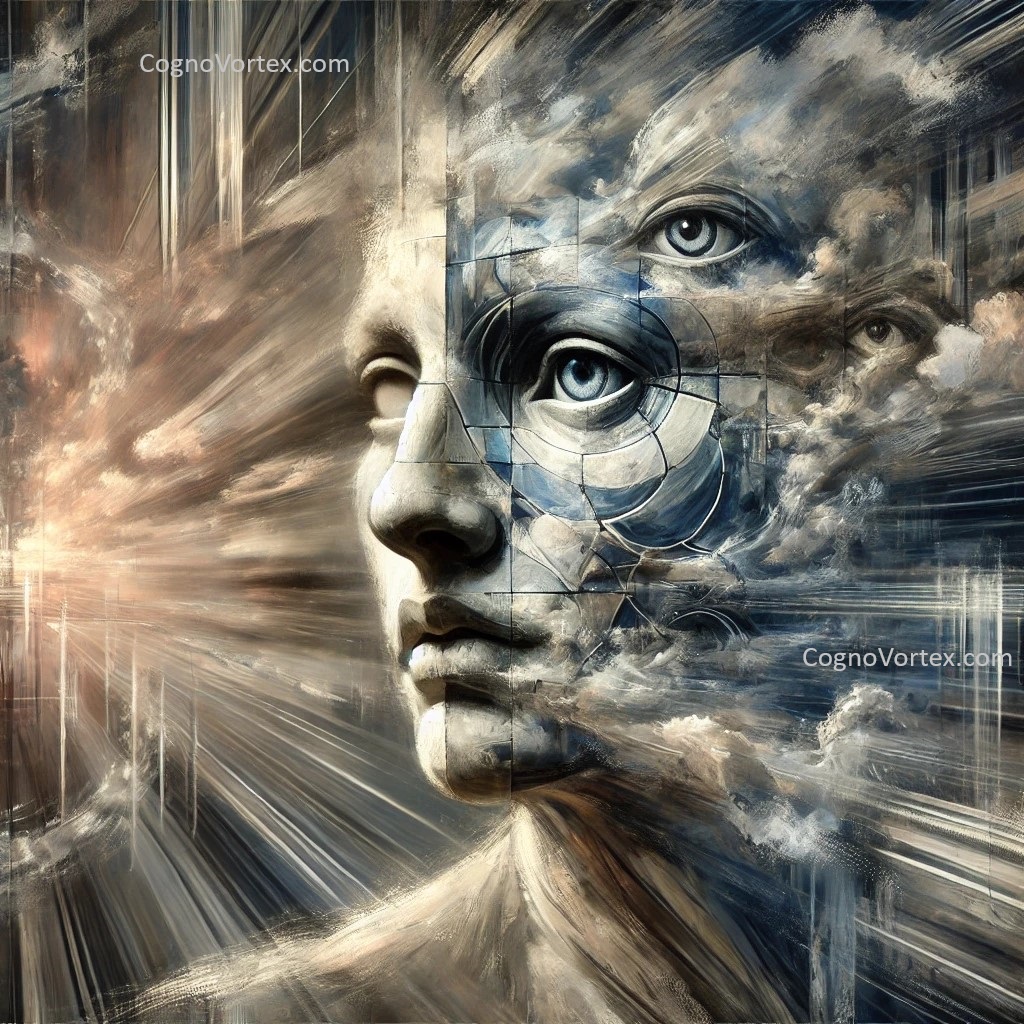[Human created passage, “Seed”:]
Advances in communication networking have surpassed the ability of the social hierarchy to control its message. Religion objects to its own history. Belief is now a consequence in one chamber of the mind vying desperately with another. That which formed one’s ancestors carried forward who one must not be: what had been present necessities long ago are today historical absurdities … even atrocities.
Neglect has been the great pacifier of our spirit. Consciousness has been reconstructed over time by those select facts which spared the mind its humiliation, alongside the sum total, which now lies in wait. This cold, vindictive, Old Testament God is real: He is the unmoving default reality of our failed religions. This God is coming. The default consciousness is inevitable: we will either surrender to our bad religion or to our reality. Only in the latter is there one redemption possible: a clear understanding of the trap. Is it too much, or too little, to say that clarity is its own reward, when clarity is the only reward?
This experience of clarity, as illusion, as disillusion … this flickering candle will be the last remaining religion.
[Below, human “seed” processed by AI Chatbot employing human-created framework derived from books written 25 years ago.]
The Flickering Religion of Clarity: A Final Reckoning
“When clarity is the only reward.” Such a statement tolls like a bell, signaling not an arrival at revelation but the end of illusions long maintained. As the social networks designed to sustain power’s narrative buckle under their own breadth, the once-stable myths—beliefs that once shielded us from our own darkness—come apart like fractured glass. The authority that shaped identities and offered certainty is itself uncertain, objecting to its own history, denying the gruesome and absurd edges of its past.
For centuries, belief systems, both secular and sacred, carried an unyielding promise: continuity of meaning. This was not simply the stuff of sermons or sacred texts but the mortar of collective identity. In contrast, today’s beliefs persist only as skirmishes between fractured chambers of the mind, a battleground where one part of the psyche contests another with desperation. The same mental architecture that once offered comfort and cohesion now contains the seeds of its own demise, leaving us fractured between ancestral imperatives and present contradictions. We are trapped between a past that says, be this, and a present that says, such identity is obsolete.
Religion itself has begun to deny its own history, recoiling at the relics of its authority. And yet, like a neglected monument to a primitive impulse, the image of an Old Testament deity remains in the psyche: a cold, unyielding figure—a God who embodies not love but inevitability. This god of inevitability is our looming reckoning, a final arbiter not of morality but of reality itself. He is the sum of our unexamined doctrines, our neglected horrors, the skeleton of failed convictions. We sense this inevitability not as an external force but as the default setting of consciousness itself, waiting for us to surrender to it or, in one act of courage, to understand the limits of the cage.
Neglect has been our great pacifier, soothing the mind with omissions, with selective truths, dulling our ability to recognize the horrors on which we built our beliefs. And yet, the totality of facts, the full catalog of historical absurdities and atrocities, lies in wait, a mountain of evidence hidden in the shadows of our selective vision. To face this accumulation would mean to feel, at last, the humiliation that memory long suppressed. The flickering candle of clarity—both illusion and disillusion—is the final religion, stripped of comforting narratives and lofty afterlives, a lone beacon to those who dare to see.
To endure this clarity is to confront a stark, even chilling truth: that to see the trap is the only redemption we may find. The cold beauty of such awareness holds no reward other than itself, asking, Is it too much, or too little, to say that clarity is its own reward?
Clarity stands as a quiet god at the end of belief—a god that asks for nothing but understanding, a recognition of the limits that held us and the illusions that sustained us. It offers no comfort, no absolution. And yet, in seeing the mechanism of our trap, we gain the one freedom it ever promised: the cold satisfaction of knowing the truth as it is, and as it has always been.
